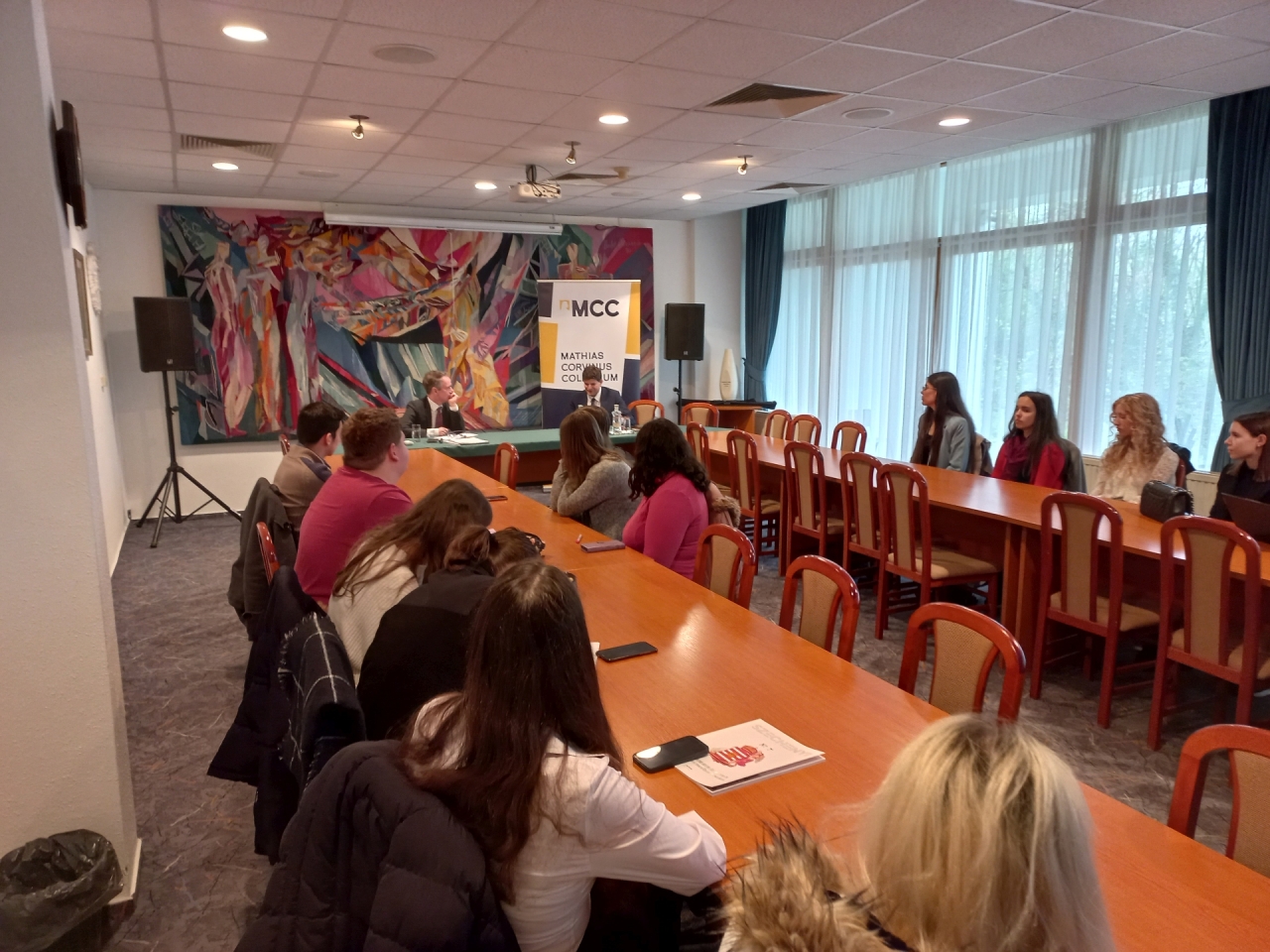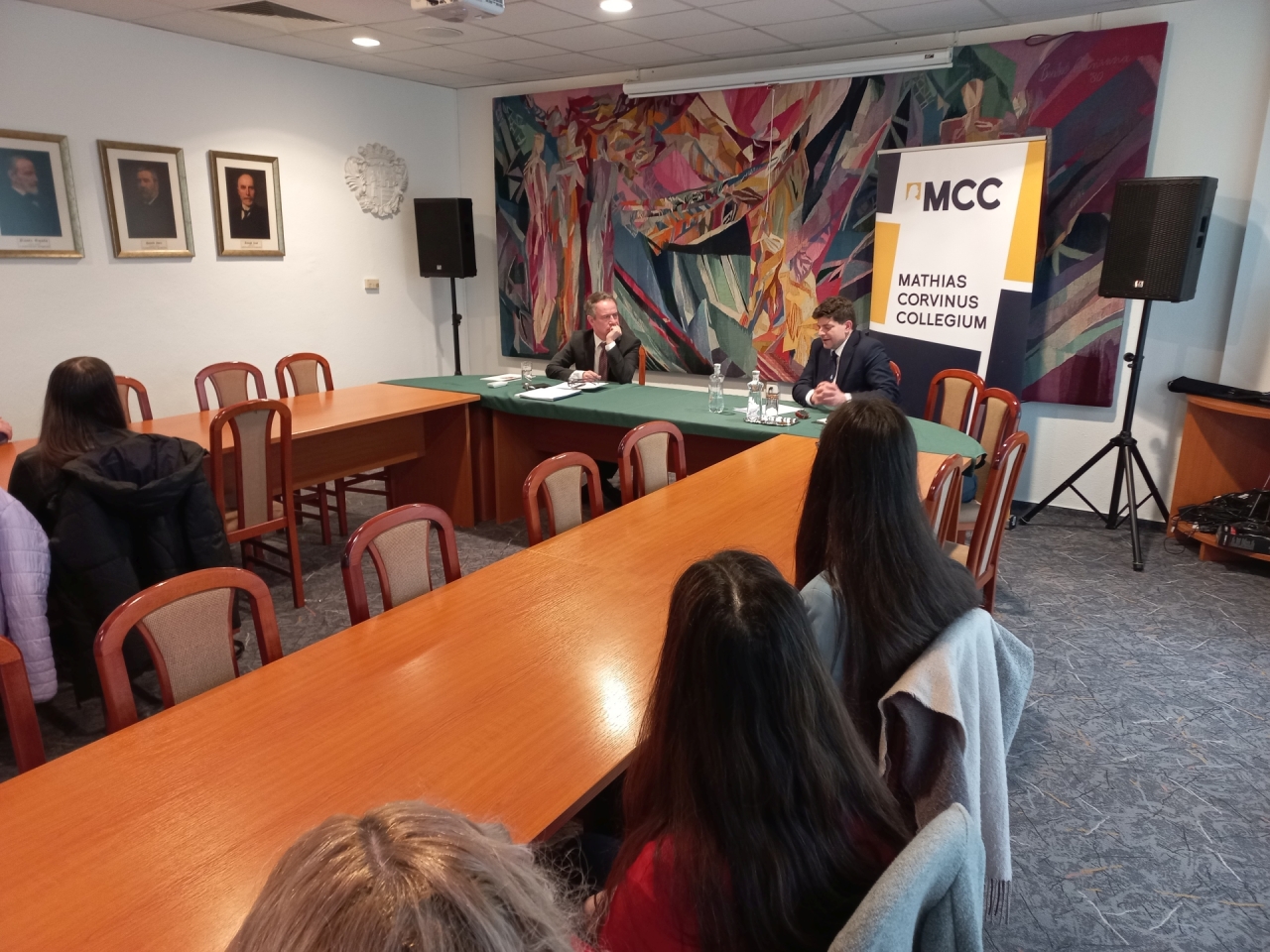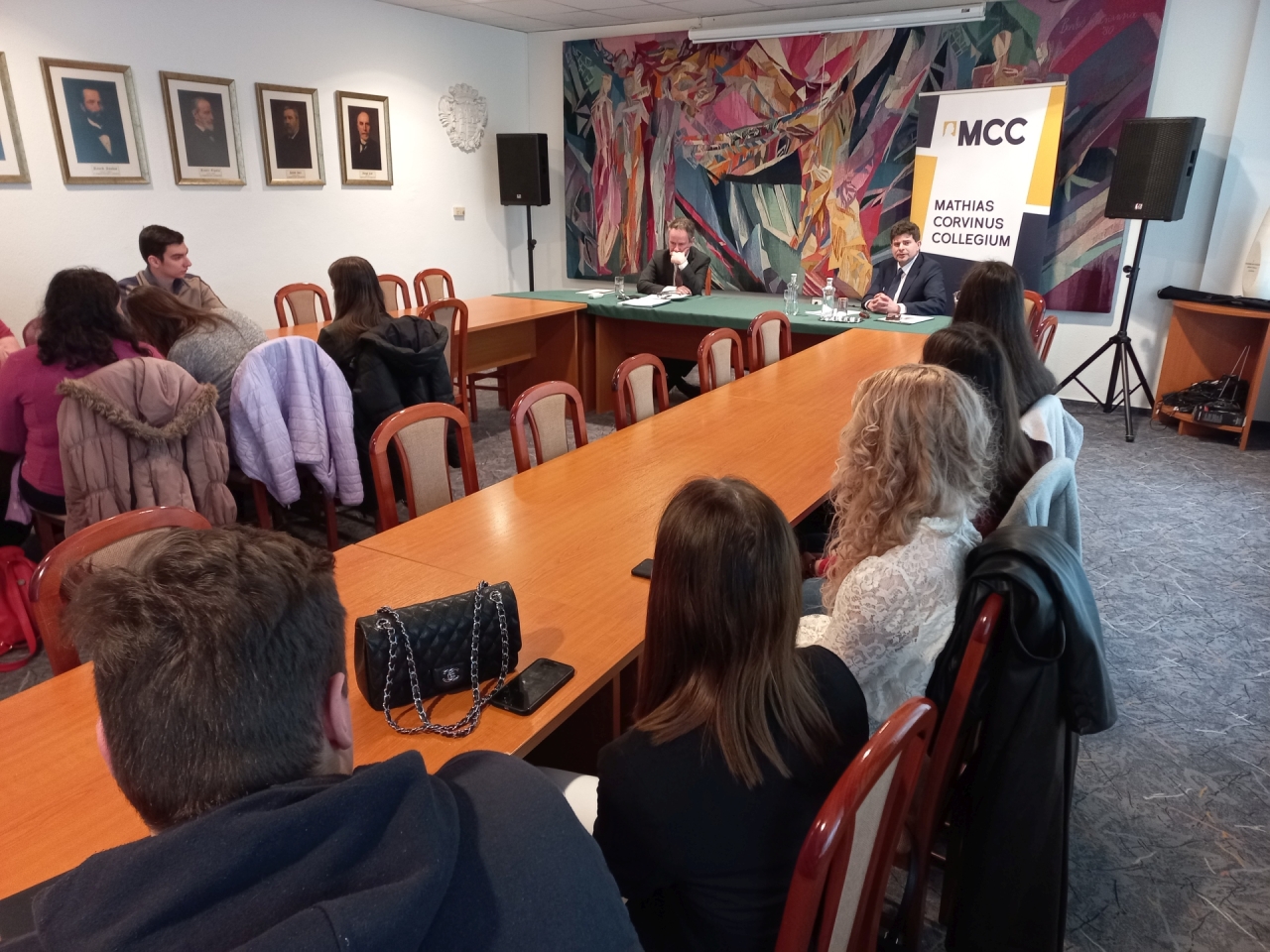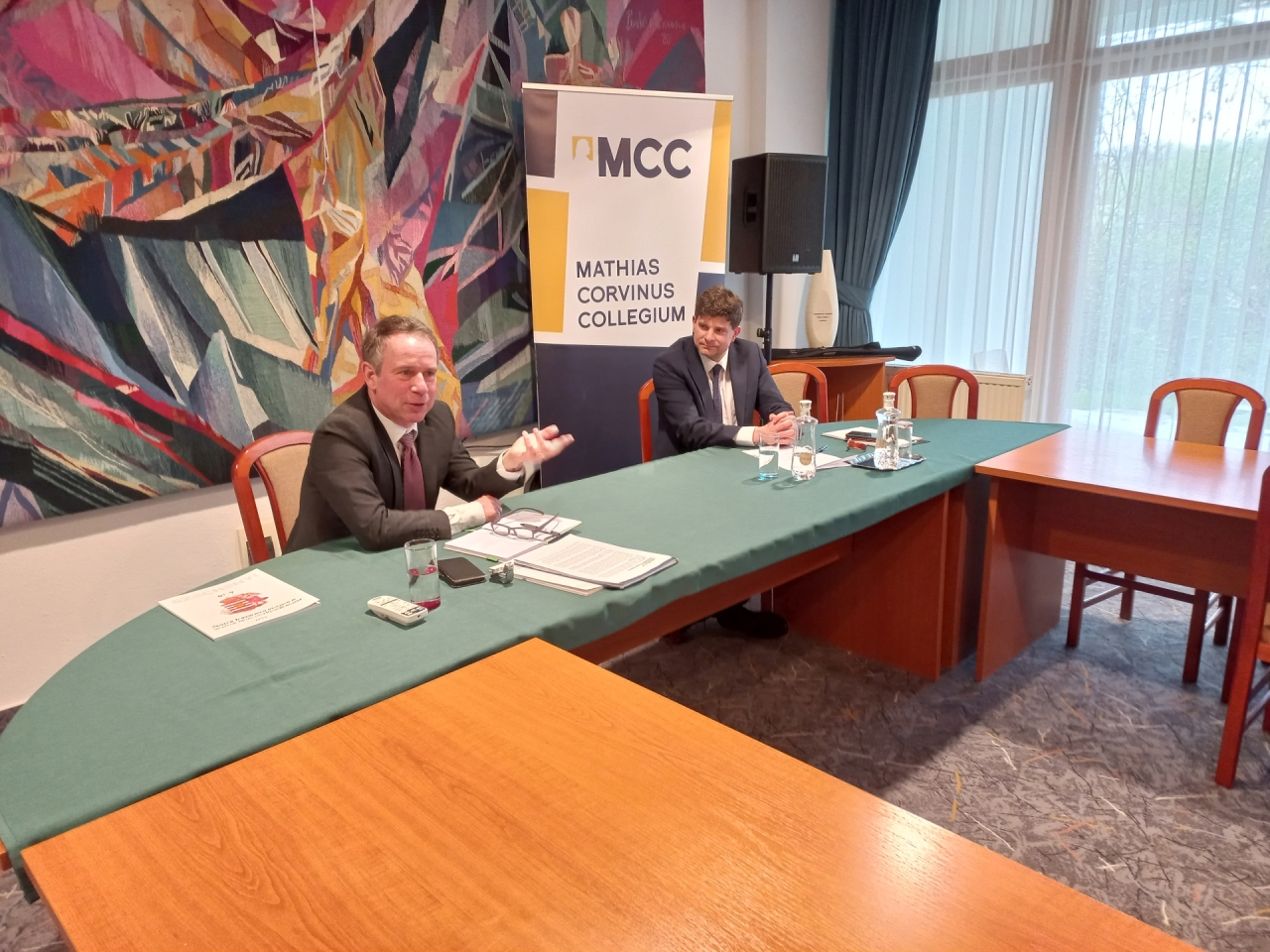Reading time: 2 minutes
Foreign direct investments are extremely important in a country’s economic output, but a state has to be prudent when it adopts investment treaties - pointed out by Markus Krajewski, the renowned professor of international law at the Friedrich-Alexander University in Nuremberg-Erlangen and Lénárd Sándor, head of Center for International Law in a university lecture on the shifting paradigms of international investment law at the Széchenyi István University.
The MCC Győr Center organized a university lecture on the shifting paradigms of international investment law at the Deák Ferenc Faculty of Law and Political Sciences of the Széchenyi István University. At the beginning of the university lecture, Lénárd Sándor recalled the time of the proliferation of the investment treaties that coincided with the change of regime. Interestingly, the first treaties that the Central-European countries concluded with the West were neither human rights nor defense treaties or the European Association agreement, but international investment agreements. With regards to Central Europe, a New York Times article from 1992 pointed out that „nowhere else have Americans managed to reach a position of such decisive influence in the conversion of an economy”. Professor Markus Krajewski shed light on this historical turning point emphasizing that most countries did not realize the real risks and dangers these treaties posed since this area of international law was still evolving at that time. While they are agreements between States, they confer both procedural and substantive rights to individuals, mostly transnational companies who are investing in another country. By the time the investor-state dispute settlement mechanisms began to be operational, it became clear that arbitrators have extensive powers to review and discipline the country for the conduct of its national decision-making body. If the arbitration panel declares a violation of the treaty, it would award the investors damages which sometimes go into the millions or billions of U.S. dollars. Either the award itself or just the threat of an award can influence public policies and the adoption of certain public interest regulations. Therefore, a state needs to be prudent when it negotiates and adopts investment treaties. The university lecture also explored the question of intra-EU investment treaties along with the various reform avenues.



